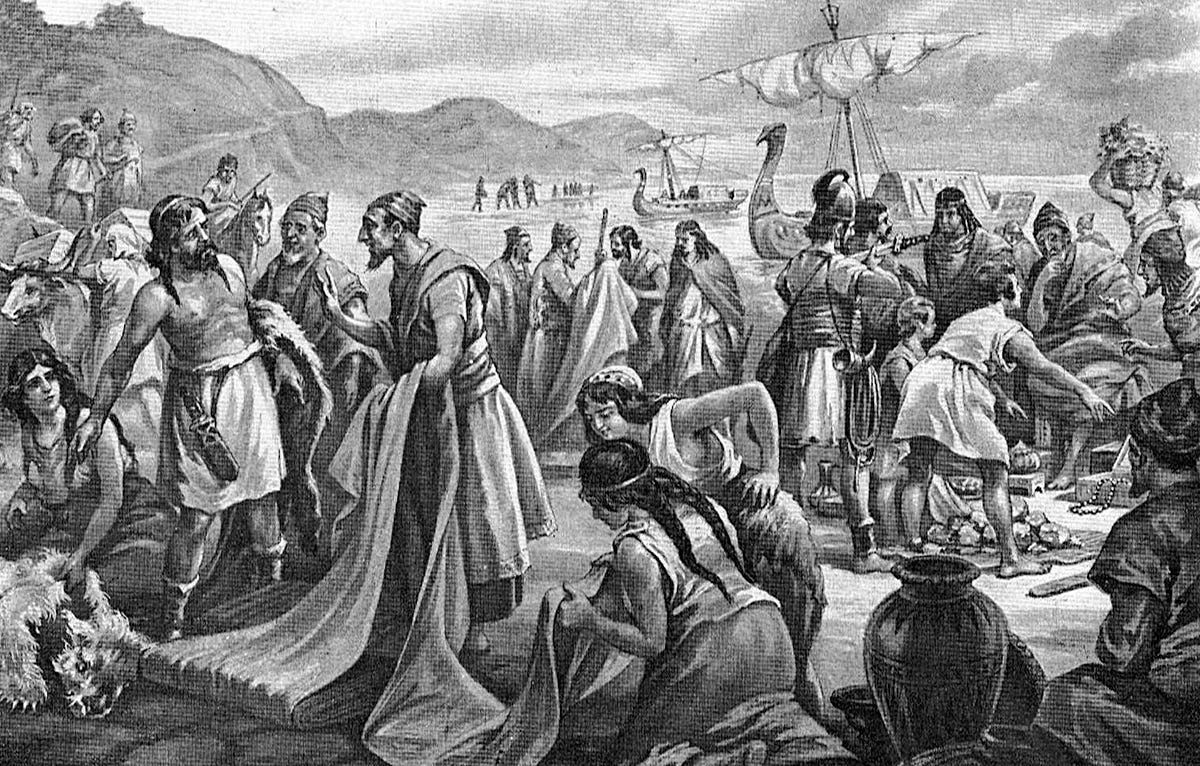The Merchant Caste
It's just business.
The Phoenicians traveled the Mediterranean long before the Greeks and Romans, trading, establishing settlements and refining the art of navigation. But who these legendary merchant sailors really were, has long remained a mystery.
There is debate amongst historians whether “Phoenicia” was ever a unified society or consisted of a national identity. Rather, it was a loose alliance of many city-states beginning in modern-day Lebanon and Syria, and expanding throughout the Mediterranean.
‘In Search of the Phoenicians’ author, Josephine Quinn makes the startling claim that the Phoenicians never actually existed. She argues that the notion of these sailors as a coherent people with a shared identity, history, and culture is a product of modern nationalist ideologies – and a notion very much at odds with the ancient sources.
“They did not in fact exist as a self-conscious collective or “people”. The term “Phoenician” itself is a Greek invention, and there is no good evidence in our surviving ancient sources that these Phoenicians saw themselves, or acted, in collective terms above the level of the city or in many cases simply the family.”1
Josephine Quinn shows how the belief in this historical mirage has blinded us to the compelling identities and communities these people really constructed for themselves, based not on ethnicity or nationhood but on cities, family, colonial ties, commerce, and religious practices.
Other historians have come to the same conclusion; “The categorization of the Phoenicians as a single group with a common ethnic origin is based mostly on geographic and historical conditions, and the way in which they were viewed by others, not the way they viewed themselves.”2
Now where have I heard of a group of dispersed people, linked in similar fashion?


